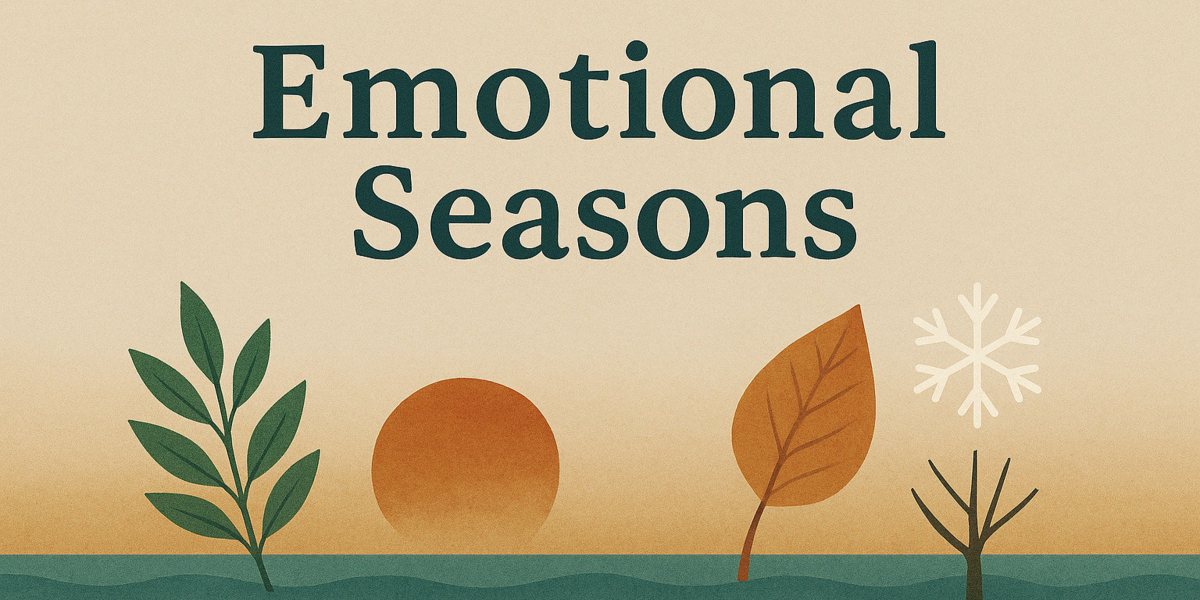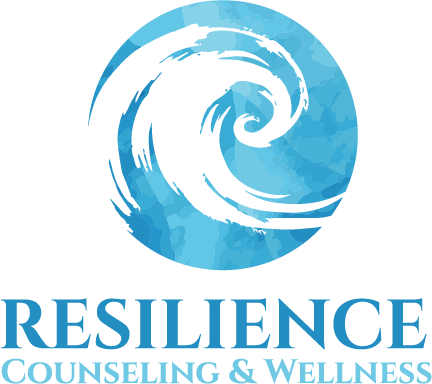Therapy isn’t just about insight—it’s about learning how to live in rhythm with yourself.

The Myth of Consistency
Let’s start with something we hear in therapy all the time: “I wish I could just be consistent.”
What most people don’t realize is that this longing for steadiness often comes from cultural messages—not personal failure. We’re told that wellness looks like routine productivity, balanced mood, and high energy. But in reality? Emotional life has seasons. It changes. And that change is deeply human.
Just like the weather outside, your internal landscape shifts—sometimes subtly, sometimes dramatically. Naming and honoring changes isn’t a weakness. It’s wisdom. It’s the foundation of self-trust.
What Are Emotional Seasons?
Think of your emotional state as a cycle—fluid and responsive, not fixed or predictable. These “seasons” aren’t diagnoses or personality traits. They’re temporary emotional climates shaped by your body, your relationships, your past, and your environment.
Here’s what they might look like:
| Emotional Season | Qualities | Possible Needs |
| Spring | Renewal, curiosity, openness | Creativity, gentle momentum, space to grow |
| Summer | Action, expression, visibility | Movement, celebration, connection |
| Fall | Reflection, clarity, boundary-setting | Evaluation, solitude, letting go |
| Winter | Retreat, stillness, emotional depth | Rest, nourishment, tenderness |
Importantly, these seasons aren’t fixed to the calendar. You can feel emotionally wintry in July or summery in December. It’s less about time—and more about truth.
Why Your Mood Shifts Matter
When clients say things like “I feel off” or “I don’t know what’s wrong,” they’re often in a transition between seasons. And transitions are disorienting.
Understanding your emotional rhythm is worth it because it:
- Gives you permission to feel what you feel
- Reduces shame around low-energy or quiet phases
- Improves communication with partners, friends, and your therapist
- Helps you advocate for what you need: space, movement, expression
Therapy helps you learn how to work with your season, not against it. Healing doesn’t demand emotional uniformity. It invites honesty.
A Practice to Try: The Inner Weather Forecast
Inspired by our August newsletter’s coping tool, this check-in helps you build emotional literacy.
Each day, ask yourself:
• What’s the emotional weather inside me today?
Use descriptive—not diagnostic—language. (e.g. “foggy,” “scattered,” “gentle,” “stormy”)
• Is there a shift I need to make?
Maybe it’s canceling one obligation or stepping outside for five minutes.
• Can I meet this forecast with kindness?
Every feeling is a cue—not a flaw.
Building this daily awareness lays the foundation for intentional self-care.
Small Choices That Honor Big Feelings
You don’t need a full treatment plan to navigate an emotional season. Sometimes, the most healing decisions are the quietest ones. Here are examples our therapists often explore with clients:
- Saying “no” to a second obligation when you’re in fall
- Reaching out for support during winter—even if you don’t have the words
- Decluttering your space as a form of emotional clarity
- Allowing yourself to enjoy joy without guilt during summer
- Journaling one thought a day in early spring, just to see what’s growing
These aren’t revolutionary steps—but they’re brave. They communicate “I’m listening to myself, and I trust the message.”
Breathwork: Support for Inner Seasons
Our 9D Breathwork Group is designed to meet you in any emotional season, especially fall and winter, when reflection and emotional release feel essential. The immersive experience allows you to bypass surface-level thinking and reconnect with body, breath, and deeper clarity.
Clients often describe this modality as the turning point:
“When I couldn’t talk through it, I finally breathed through it.”
Therapy Is About Deep Listening
Emotional seasons remind us that we’re not machines. We’re alive. And aliveness comes with flux.
At Resilience Counseling & Wellness, we help you build a healing rhythm that reflects your real life—not idealized norms. Whether you’re navigating trauma, anxiety, grief, growth, exhaustion, or change, we’re here to help you return to yourself—again and again.
Not sure which emotional season you’re in? That’s okay. You don’t have to name it perfectly to begin. Schedule a free 15-minute call with Frankie to explore what kind of support fits your current rhythm—and meet the therapist who will support you through your changing seasons.

